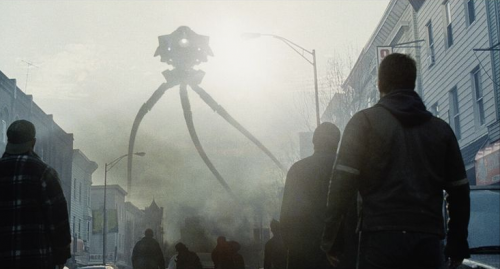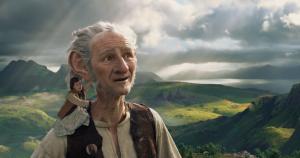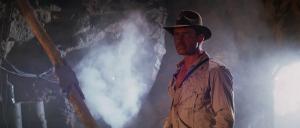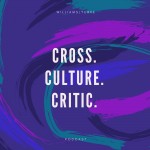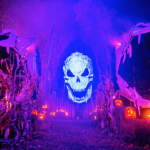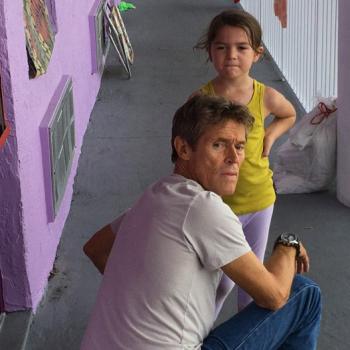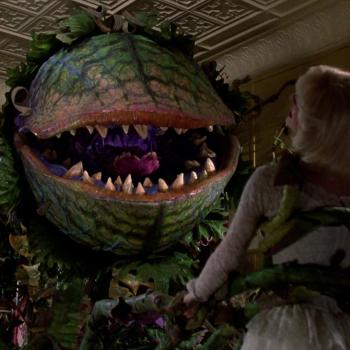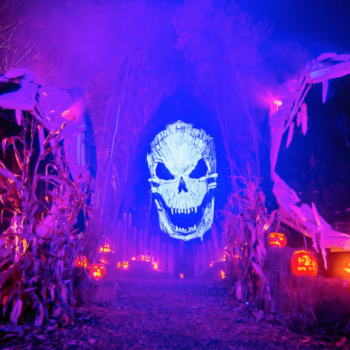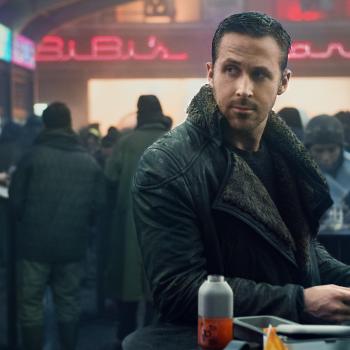This weekend, HBO airs its documentary “Spielberg,” a 2.5-hour long overview of the career of America’s most beloved director.
I wouldn’t be a film fan if it wasn’t for Spielberg. “E.T.” was the first film I ever saw in a theater, and my first (of seven) big-screen viewing of “Jurassic Park” is what made me fall in love with the movies. “Saving Private Ryan” was the first movie that devastated me emotionally, and on any given day it’s a toss-up between “Raiders of the Lost Ark,” “Jaws” and “Close Encounters of the Third Kind” for my favorite film. Few filmmakers are as responsible for stirring as much emotion and wonder in me, and Spielberg is still doing great work.
In honor of the documentary, I originally thought of doing a list of my 10 favorite Spielberg films. But then I thought we’d be hitting the usual suspects over and again (you can still read the list here). But Spielberg’s a director with as many overlooked masterpieces as beloved ones. And so I thought it might be fun to do a list of the 10 Steven Spielberg films that I just feel don’t get enough love, even though many wound up with award nominations or critical accolades. It was a fun list to put together, and the more I revisit Spielberg, the more I want to go back and watch his filmography from the start.
1. Munich: Spielberg’s thriller topped my list for the best film of 2005, but I’ll admit that I’ve had very little desire to go back and rewatch it. It’s a painful movie, a grappling with horrific violence and the murky morality of retribution. Spielberg’s depiction of Israel’s response to the terrorist attacks at the 1972 Munich Olympics is steeped in religious and political philosophy and told with impeccable period detail, but it’s also incredibly timely, a story about the soul-killing nature of revenge told in wake of Sept. 11. Eric Bana has never been better, and Spielberg stages some of his most heart-rending moments; a scene featuring a nude woman dying as she cradles a cat has been seared into my brain since that first viewing. And yet, Spielberg’s able to make this grim thriller gripping and even exciting. There’s a duality we often see in the director, a difference between the entertainer of the first half of his career and the moral historian of the latter. In “Munich,” both sides kiss and the result is unforgettable.
2. Lincoln: “Lincoln” was a critical success. It won Daniel Day-Lewis an Oscar and was nominated for both Best Picture and Best Director. It brought in $275 million worldwide at the box office. And yet, I rarely hear it brought up. I’ve heard people roll their eyes at watching Spielberg’s history lesson, and some have even mocked Day-Lewis’ nasally accent. After four years, I fear it’s already looked at as minor Spielberg. But I think it’s one of the director’s great movies. I initially dreaded a lengthy hagiography, a stuffy epic that was basically Spielberg’s take on Great Moments in American History. But that’s not the film he made. A focused and whip-smart look at the president’s efforts to pass the Thirteenth Amendment, the movie turns politics into gripping drama and reveals the greatness of its subject through his actions and his flaws. It’s also one of Spielberg’s funniest movies, finding humor in Lincoln’s penchant for long-winded storytelling and the heated bickering on Capitol Hill. And while Day-Lewis is as great as advertised, it’s easy to forget that “Lincoln” has a hell of an ensemble, including great turns by James Spader, Jackie Earle Haley, Sally Field and Tommy Lee Jones (rightly nominated for an Oscar). This is a passionate, fast-paced and smart movie, and one that only gains more relevance and importance as our political process degrades.
3. A.I. Artificial Intelligence The coldest, meanest and most horrifying film Spielberg has made. And in 2001, none of us had any idea what to expect. Given its title and science fiction trappings, many of us went into this film in the summer of that year expecting Spielberg’s next warm-hearted fable, perhaps an “E.T.” for the 21st century. But don’t let the “Pinocchio” allusions fool you: “A.I.” is almost unbearable sad. The story of an android boy (Haley Joel Osment) programmed to love, Spielberg’s long-developed take on Stanley Kubrick’s idea addresses questions of what it means to be human, what our relationship is to artificial intelligence, the futility of manufactured love, and the horror of never-ending childhood naivety. It’s a visual treat, with some of the most awe-inspiring sights the director has ever given us. Osment gives a performance for the ages. And Spielberg leans into Kubrick’s chilliness, not allowing us to turn away from the story’s harsh questions. Its final 30 minutes frustrate, but the more I wrestle with this movie, the more I see it as a mistake to see it as a happy ending. It’s a chilling, selfish one for David, but the only one he was programmed for.
4. War of the Worlds: “War of the Worlds” is seen by many as Spielberg retreating back into blockbuster mode after several bleak, thought-provoking science fiction films. Those people have not watched this movie in awhile. “War of the Worlds” is stark sci-fi horror, and it’s one of the first blockbusters to invoke 9/11 imagery to gripping effect. The first tripod sequence is one of the most visceral moments of Spielberg’s career, and the film doesn’t let down after that. There are so many moments that stick with me — the melee outside the diner, the train on fire, the river filled with bodies, the ferry, the encounter with Tim Robbins. This is muscular filmmaking, and an examination of our worst horrors — living and surviving in a country under attack, as American refugees. So what if it has a happy ending? After this ordeal, we need one. I know it’s popular to think of “Minority Report” as Spielberg’s best collaboration with Tom Cruise, and I really like that film. But this edges it out due to its relentlessness and the rare turn for Cruise as a believable, real guy.
5. The BFG: One of Spielberg’s bigger box-office disappointments, and it’s a shame. There’s a tendency among people my age to remember “Hook” fondly, which I attribute to the fact that they probably haven’t watched “Hook” recently. But “The BFG” is the movie I’d hoped “Hook” would be. Whimsical and funny, it’s one of the director’s most gentle films, anchored to a beautiful performance by Mark Rylance (his second collaboration with Spielberg). The use of color here is so wonderful as is the refusal to shoehorn this into anything resembling a fantasy epic or a franchise. It’s simply a funny, gorgeously told bedtime story, with Rylance ably bringing Roald Dahl’s language to life. One of the best family films of the last decade.
6. Bridge of Spies: Like “Munich,” it’s another historical drama that was a box office and critical success, earning an Oscar for supporting actor Rylance and nominations for picture, score and screenplay, among others. But ask around today and “Bridge of Spies” has a reputation as a “dad movie.” Yes, it’s old fashioned. Spielberg was basically making his Capra movie, with Tom Hanks starring in the Jimmy Stewart role. But there’s forced sap and then genuine goodness, and what Hanks creates is a portrait of integrity in the middle of a corrupt system. The script, co-written by Joel and Ethan Coen, finds dark humor in political maneuvering and Spielberg makes an entertaining, suspenseful movie out of complex international negotiations. At the end of the day, he finds decency and warmth in the relationship between Rylance and Hanks’ characters, giving what could have been a stuffy or cold drama warmth and heart. Late-period Spielberg is fascinating; he’s got a historian’s mind, but his humanist instincts are still intact.
7. Duel: It’s easy to think that Spielberg warmed up with his first two films and then arrived with “Jaws.” And yes, that film is genuinely pantheon-worthy, the first true Spielbergian film. But his first two films would be the best films of a lesser director. “Duel,” in particular, is a muscular, visceral experience, so relentless that it’s hard to believe it was made as a TV movie. The story of a man’s epic confrontation with an unseen semi driver, the movie is a white-knuckle chase, “Jaws” on wheels. Dennis Weaver is great as the put-upon lead, whose path crosses with the homicidal trucker. The chase sequences, particularly the bone-rattling climax, show that Spielberg came out the gate with instincts for good set pieces. But the quieter moments, like a paranoid tracking shot through a diner, are also meticulously laid out, and the film’s subtext about masculinity would still be relevant today.
8. The Sugarland Express: Spielberg’s first feature film, I worry that this has been largely forgotten, which is a shame. Another chase movie, this is the story of two convicts (William Atherton and Goldie Hawn) on the run from the cops as they try to get their baby out of an orphanage. The movie is a quick-paced road story, filled with chase and near-escapes. Hawn and Atherton are great together, particularly the young actress in an early dramatic role. The film is often light, and there’s a prescient thread about the outlaws becoming celebrities. But there’s a low hum of doom underneath everything, as the film builds to a tragic conclusion. A foreboding early shot, in which Atherton’s character slowly comprehends his fate while watching Road Runner cartoon, is one of my favorite Spielberg moments.
9. Indiana Jones and the Temple of Doom: I know…underrated? It’s one of the most iconic adventure movies of all time and it was followed by two sequels. But “Temple of Doom” has a bad rap. It’s seen as too dark, too shrill, too mean. Even Spielberg has largely dismissed it. I say the naysayers are being too hard. Sure, it’s no “Raiders,” but that happens to be one of the greatest movies of all time. But it has its own unique charm, leaning deep into the B-movie serials and loving its gross-out gags and outlandishness. Yes, it’s flawed. Kate Capshaw’s gives one of the more annoying performances in film history, and the movie never paces itself with the confidence and skill of “Raiders.” But it’s also a bullet-paced roller coaster ride, its back half careening with admirable momentum. There’s so much good stuff here. The “Anything Goes” opener, the bugs, Mola Ram, Indy and Short Round’s relationship, that mine car chase, the bridge. “Raiders” is a perfect adventure movie; “Temple of Doom” is just a great ride. And it doesn’t make the misstep of selling out beloved characters for a joke like “Last Crusade” does (a movie I enjoy, but is my third-favorite Indy film).
10. 1941: It’s notorious as one of the director’s bombs. And if we’re being honest, it’s a mess. This screwball comedy about World War II paranoia is sprawling, juvenile and too frantic for its own good. But it never lands with the thud that the worst Spielberg misfires do (I’m looking at you, “Lost World”). There’s enough here to enjoy, be it the “Jaws” the opens the film, a dance number that turns into a brawl or the runaway ferris wheel at the climax. It’s a silly movie and perhaps pure comedy just isn’t in Spielberg’s wheelhouse. But in certain moments, it’s fun enough, and not the disaster some have made it out to be. And it looks gorgeous.

